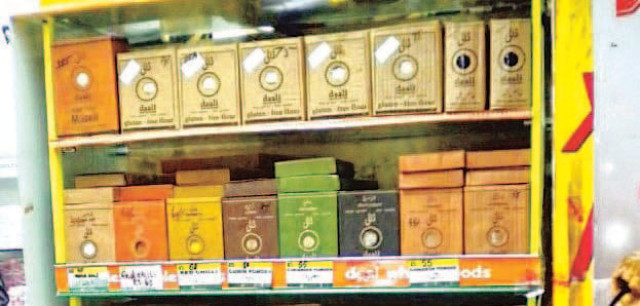Organic food: Back to the basics
Organic food is becoming popular in Pakistan.

Organic food is chemical-free. It isn’t grown from genetically-modified seeds (that cannot reproduce), nor is it drenched in chemical fertilisers and pesticides. Consuming organic food protects us from the array of diseases and health conditions that are caused by eating contaminated food... and that accounts for much of what we eat.
For Pakistanis, opting for organic food doesn’t mean that we are simply being fashionable or following Western fads; it mean that we’re going back to the basics. Organic food is not a new concept for us. Our forefathers were all organic farmers, using natural fertilisers and natural methods of pest control. In modern times, organic farming entails the use of organically approved pesticides and fertilizers to maintain soil productivity and to control pests. Organic farmers employ methods like crop rotation, green manuring, and use compost that is made by the farmers themselves.
But as in so many cases, we have lost touch with our own traditions, while the Western world adopts them wholeheartedly. Organic food and healthy living are the new buzzwords, with Hollywood stars Angelina Jolie, Julia Roberts and Gwyneth Paltrow leading the charge. Even Prince Charles is a staunch organic food activist. Shops and restaurants specialising in organic food are all the rage worldwide.
Luckily, we haven’t missed the boat on this one! There are people working to bring organic food to our tables as well, people like Mariam Ibrar of Daali Earth food. Daali’s organic products are available at various departmental stores in Lahore, Karachi, Islamabad and Faislabad. Mariam Ibrar, the person behind it, took the initiative four years ago when she vowed that she would no longer feed her children with preservative-ridden cereals and adulterated food.
Following in her green footsteps, two of her friends came up with their own brands to help promote the idea of adapting to healthier food. Nilofer Saeed set the trend in the restaurant industry by offering dishes with purely organic ingredients in Neco’s Café and also by setting up the Natural store in Karachi. For those looking for healthy restaurant dining, this café offers an organic menu with hormone-free ‘desi’ eggs, pure wheat and olive oil.
Sungold Organics is another label that ensures the provision of chemical-free and naturally grown vegetables. They produce their own natural fertilizer and have a long list of vegetables like eggplant and broccoli that are in any case hard to find at your local sabzi-walla... and they even deliver to your doorstep! Many of us are familiar with Zoya Aliem Khan’s herbal beauty products, which are available across Pakistan, but in recent years she has also started stocking healthy food in some larger stores in Lahore.
Even foreigners are pitching in. Alexander Kuhne came all the way from Germany with a mission to conserve nature and promote natural living, under the aegis of the Roshni Association. This organisation, which aims to help special children, also has gardens where organic food is grown for the staff and residents. The surplus eggs, vegetables and fruits are stocked at the local store Panjeeri in Lahore’s mini market.
So organic food is now increasingly available... but is it affordable?
“This is the main problem,” admits Marium Ibrar. “We as individuals cannot grow on a large scale. If we think about it seriously it is possible for a country like Pakistan to emerge as a major grower and exporter of organic food.”
Alexander Kuhne holds out hope for the future, saying: “The system will transform gradually. Growing organic food is knowledge-intensive and it will take farmers a lot of time to adapt to this type of farming. We also have to take into consideration that we live in a capitalist economy where profits are always the first priority.”
If premium prices are a problem, then growing your own food is a good option. Even if you only have a small patch of land, this enables you to both have a healthy relationship with nature as well as produce food. Just ask any good gardeners to examine the suitability of the land and get started. Compost can also be made at home by utilising garden and kitchen waste material. There are various other options that you can learn and explore.
Take an interest in the food that you put on your plate because, after all, you are what you eat.
Published in The Express Tribune, Sunday Magazine, March 27th, 2011.

















COMMENTS
Comments are moderated and generally will be posted if they are on-topic and not abusive.
For more information, please see our Comments FAQ